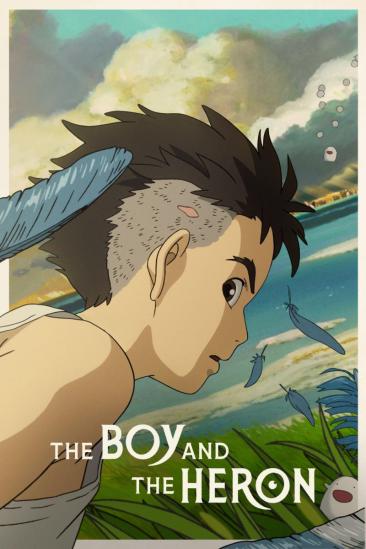The Boy and the Heron (2023)
2023
PG-13
124 Minutes
Adventure | Fantasy | Drama | Family | Animation
While the Second World War rages, the teenage Mahito, haunted by his mother's tragic death, is relocated from Tokyo to the serene rural home of his new stepmother Natsuko, a woman who bears a strik...
